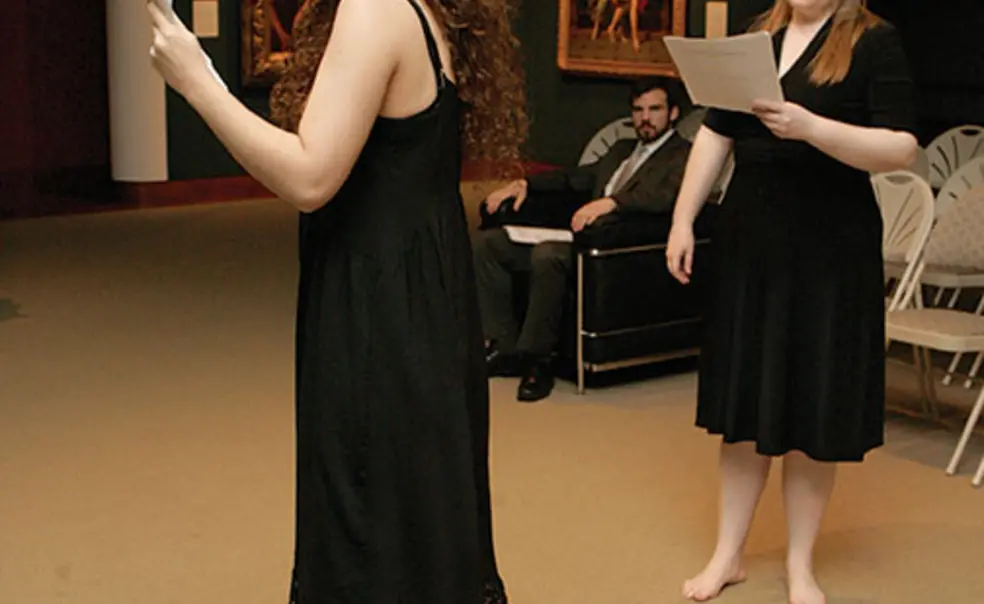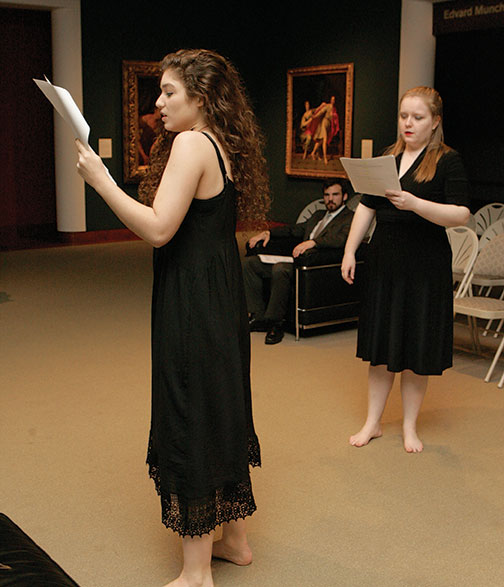Phaedra, Revisited
Yearlong project captures Greek myth in music, on screen, and on stage
Phaedra is one of Greek mythology’s most enduring figures, and for good reason: Scandalous love and dysfunctional family dynamics are as relevant today as ever. The sensational story — Phaedra is sexually attracted to her stepson, Hippolytus, and viciously retaliates when he rejects her, leading to tragedy — has been retold for hundreds of years, from the well-known 17th-century play by French author Jean Racine to dozens of pieces in other artistic genres. Princeton’s yearlong “Myth in Transformation: The Phaedra Project” has brought together students, scholars, and artists for plays, musical performances, film screenings, poetry readings, lectures, and a symposium, all re-imagining and re-examining Phaedra’s story.
The project was conceived by Olga Peters Hasty, a professor of Slavic languages and literatures, and comparative-literature graduate student Catherine Reilly, who began discussing “how varied the creative responses are to this myth,” Hasty said. Events have included the Princeton University Orchestra performing composer Benjamin Britten’s cantata Phaedra, and a New York-based theater company, the Wooster Group, screening and discussing its high-tech version of the myth, To You, the Birdie! The Martha Graham Dance Company will perform scenes from the dance piece Phaedra March 27, interspersed with explanations of how the story was translated into dance; a symposium will take place March 27–28; and music major Chris Beard ’14 will direct a reading of Hippolytus, Euripides’ play from 428 B.C., with an original vocal score, March 28 and 29 and April 3, 4, and 5.
In a staged reading of poet and retired professor C.K. Williams’ new play, Beasts of Love, performed by students Feb. 24 at Princeton’s art museum, Phaedra’s love for Hippolytus is depicted as a brutal force that leads to torture and destruction. The play conveys “how overwhelming our attractions to and passions for another person can be,” said the play’s director, Robert Sandberg ’70, a lecturer in English and theater. “The appropriateness of the other person as a love object has nothing to do with our feelings.”













No responses yet